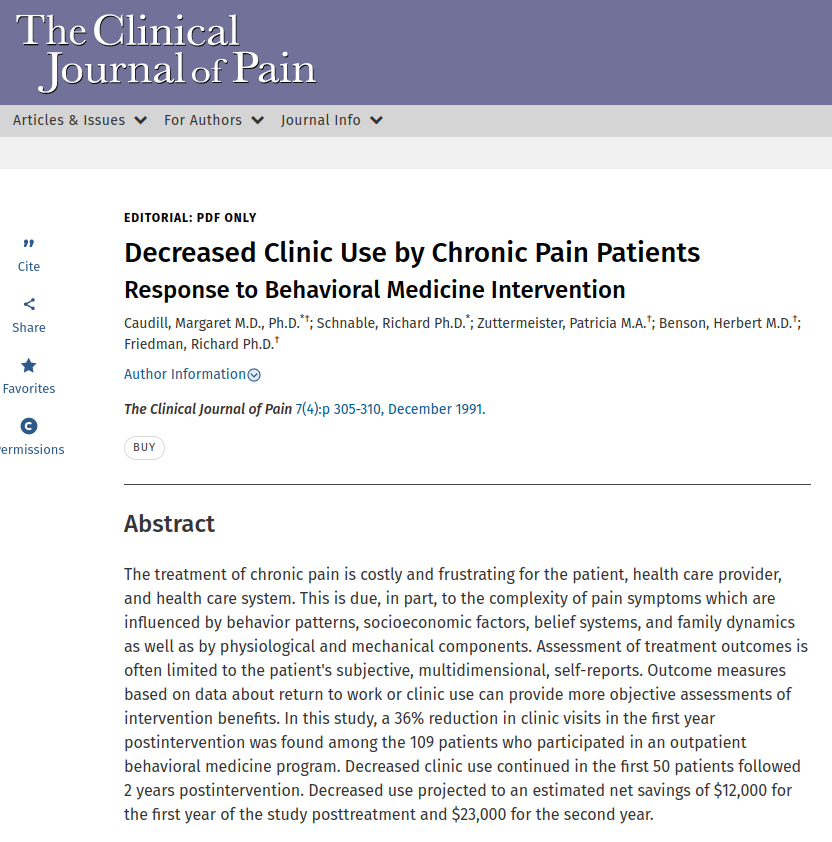The treatment of chronic pain is costly and frustrating for the patient, health care provider, and health care system. This is due, in part, to the complexity of pain symptoms which are influenced by behavior patterns, socioeconomic factors, belief systems, and family dynamics as well as by physiological and mechanical components. Assessment of treatment outcomes is often limited to the patient’s subjective, multidimensional, self-reports. Outcome measures based on data about return to work or clinic use can provide more objective assessments of intervention benefits. In this study, a 36% reduction in clinic visits in the first year postintervention was found among the 109 patients who participated in an outpatient behavioral medicine program. Decreased clinic use continued in the first 50 patients followed 2 years postintervention. Decreased use projected to an estimated net savings of $12,000 for the first year of the study posttreatment and $23,000 for the second year.
Decreased Clinic Use by Chronic Pain Patients Response to Behavioral Medicine Intervention
Publication
The Clinical Journal of Pain
7(4): p. 305-310
Abstract
Web and Email Links
Related Listings
Journal
Annals of the New York Academy of Sciences
Stress is a well-known risk factor in the development of addiction and in addiction relapse vulnerability. A series of population-based and epidemiological studies have identified specific stressors and individual-level variables that are predictive of substance use and abuse. Preclinical research also shows that stress exposure enhances drug self-administration and reinstates drug seeking in drug-experienced animals. The deleterious effects of early life stress, child maltreatment, a […]
Journal
Journal of Human Stress / Behavioral Medicine
A previous investigation has demonstrated that the practice of a meditational technique elicits a wakeful, hypometabolic state. Measurement of O2 consumption and CO2 elimination was made by sampling techniques; mean values of these parameters were calculated from 6–10 minute samples. The present study extends this investigation, using a recently developed method of continuous measurement of O2 consumption and CO2 elimination. Continuous measurement of these parameters permitted the de […]
Journal
Journal of Human Stress
Human pupillary dilatation after topical instillation of phenylephrine was assessed in a prospective, randomized, controlled experiment to measure alterations in α-end-organ responsivity after regular elicitation of the relaxation response. Baseline pupillometric measurements were taken in both experimental and control subjects. The experimental subjects then practiced daily a technique that elicited the relaxation response while the control subjects sat quietly for comparable periods […]

